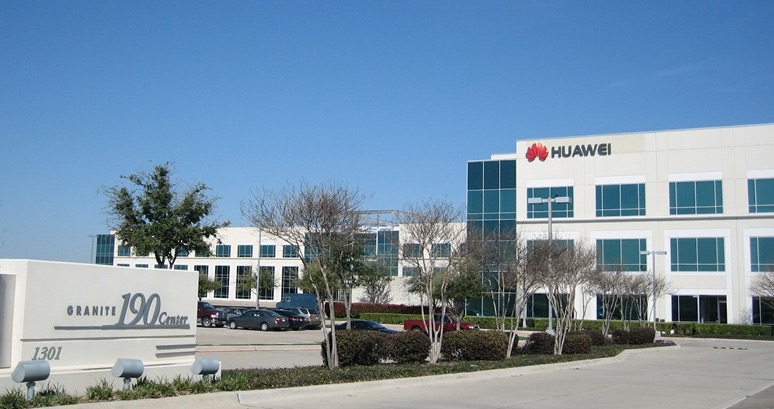 Photo: Courtesy Huawei,Office,America
Photo: Courtesy Huawei,Office,America
Huawei and Vodafone have agreed to establish the world’s first NB-IoT (Narrowband Internet of Things) Open Lab.
Under the agreement, this NB-IoT Open Lab initiative will drive strategic technology innovation and promote the eco-system relating to NB-IoT technology. Using pre-standard NB-IoT technology prior to full standardization* , the Lab will enable the right development environment which will greatly enhance the efficiency of future NB-IoT ecosystem ramp-up.
The NB-IoT Open Lab will serve as the catalyst for initiatives to explore cutting edge developments and verifications including network solution verification, new application innovation, device integration, business model research and product compliance certification, etc.
“We’re delighted to be partnering with Huawei in the creation of this new Open Lab facility for NB-IoT. As the technology moves towards commercial deployment in early 2017, it’s essential that we start building a strong ecosystem with developers and solution providers,” said Luke Ibbetson, Vodafone Group R&D Director and Chairman of the NB-IoT Forum.
David Wang, President of Wireless Product Line at Huawei, said: “This agreement builds on Huawei’s existing strong relationships with Vodafone and our joint commitment to lead the development of NB-IoT technology and its eco-system. Having successfully gained industry recognition, we will now continue to work closely with Vodafone to build a joint roadmap for the continuous evolution of the NB-IoT Open Lab to create innovative solutions to build a better connected world.”
NB-IoT technology will extend the utilization of Internet of Things (IoT) by making it more efficient to connect objects requiring a long battery life and are located in hard to reach areas to the Internet by ways of mobile connectivity. Able to be deployed over existing mobile networks, NB-IoT has strong industry support as a Low Power Wide Area (LPWA) technology in licensed spectrum. The technology is viewed by the industry as the answer for enterprise applications in a range of different areas, from utility meters, sensor monitoring, to asset-tracking. The first devices connected by NB-IoT technology are expected in late 2016 or early 2017.
A significant milestone was reached when the first successful commercial trial of pre-standard NB-IoT was completed in November 2015. Vodafone and Huawei successfully integrated the technology into the operator’s existing mobile network in Spain and then sent the first pre-standard NB-IoT message to a u-blox module installed in a water meter. This trial was the first of its kind to successfully implement narrowband communications using cellular bands.
The lab will be incorporated into the federation of NB-IoT Open Labs being planned within the GSMA’s NB-IoT Forum at a later stage. This will constitute a natural step for the two companies which are among the leading founding members of theNB-IoT Forum.
Huawei enables NB-IoT application in vertical industries through innovation and collaboration
At M2M World Congress in London on April 26, 2016, Huawei shared its Narrow-Band Internet of Things (NB-IoT) strategy and innovations to advance IoT applications and smart cities that deliver social and economical benefits. Huawei also demonstrated how it is building an ecosystem that works together to realize the full potential of NB-IoT, including its collaboration with Vodafone to launch the Vodafone NB-IoT Open Lab in Newbury, U.K.
On the ecosystem development front, on April 25, 2016, Huawei and Vodafone announced the launch of the Vodafone NB-IoT Open Lab, which aims to help third parties conduct services including network solution verification, new application innovation, device integration, business model research and product compliance certification etc., to accelerate the application advancement within the vertical industries and promote the development of the industry chain.
NB-IoT technology has emerged as the Low Power Wide Area (LPWA) standardized by 3GPP, which provides a wide array of significant advantages including supporting more than 100,000 connections per cell, a long battery life of 10 year, deep coverage with a 20db gain over GSM networks, enhanced security supported by two-way authentication and strong interface encryption, as well as providing carrier stability to enable IoT applications and smart cities.
Currently, Huawei offers a comprehensive portfolio of IoT solutions. In addition to traditional network equipment, Huawei also offers a unified business management platform and communication chipsets to provide carriers with effective support for their commercial deployment of NB-IoT solutions.
“IoT applications represent powerful opportunities to transform the way businesses and cities connect to create vast social and economic benefits. However capturing the full potential of NB-IoT applications such as smart metering and smart parking requires innovation and collaboration around NB-IoT to ensure secure, stable and robust connectivity,” said Paul Scanlan, President of Business & Network Consulting, Huawei. “Together with our partners, Huawei is applying groundbreaking NB-IoT innovation to solve core challenges around IoT applications and smart cities. As a platinum sponsor of M2M Congress, we believe this is an important forum bringing together industry experts to discuss innovation and best practices for sustainable development of NB-IoT technology to enable IoT applications and smart cities and ultimately to build a better connected world.”
To date, Vodafone, Huawei and u-blox have already completed the successful commercial trial of the pre-standard NB-IoT technology. By successfully integrating the technology into the operator’s existing mobile network in Spain, the carrier will be able to offer long-distance remote metering services to its users in the future. Huawei’s chipset and software supported this successful trial of the pre-NB IoT technology which realized narrowband communications in carrier frequency. The deployment of NB-IoT in licensed cellular spectrum means it is secure and less susceptible to interference and can provide a better guarantee of service. Further trials and large-scale commercial deployments are planned by the companies.
Moving forward, Huawei will continue to invest in innovation and is committed to building a robust, open ecosystem to drive NB-IoT technology innovation and commercialization. Together with its strategic partners such as Vodafone, Huawei will lead the development of NB-IoT connectivity across a number of different verticals including utilities, agriculture, manufacturing, wearables and transport to create a better connected world.
Source: Huawei
http://www.huawei.com/
